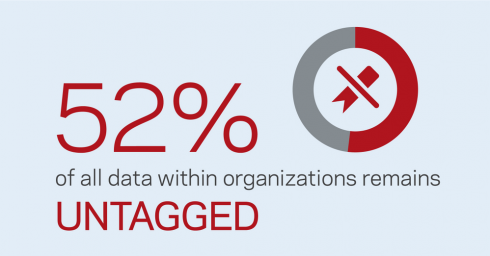
A majority of organizations are vulnerable to hack attacks because they are still in the dark when it comes to their data. A newly released report reveals more than half of all data within organizations remains unclassified or untagged, which results in an organization’s inability to assess the risk or value of more than half of its data.
The Value of Data study was conducted by the research firm Vanson Bourne for enterprise data management provider Veritas Technologies. It looked at responses from 1,500 IT decision managers and data managers globally.
RELATED CONTENT: Getting to the root of your data’s history
According to the study, 67 percent of companies surveyed said that less than half of their mobile device data is classified and 61 percent of companies said their public cloud data experiences the same amount of neglect. This poses a large security risk and the potential for companies to violate increasingly stringent data protection laws such as GDPR, Veritas explained.
“When data is fragmented across an organization and has not been properly tagged, it is more likely to go ‘dark’, threatening the company’s reputation and market share if it falls foul of data protection regulations such as GDPR,” said Jyothi Swaroop, the vice president of product and solutions at Veritas. “So it’s vital that organizations take full responsibility for ensuring their data is effectively managed and protected.”
This is partially because 69 percent of companies wrongfully think that their cloud service providers are responsible for their data management, whereas, cloud provider contracts often state the opposite, the report stated.
However, improving data security is a major priority in 64 percent of the companies followed by data visibility at a much smaller 39 percent and guaranteeing regulatory compliance at 32 percent.
“A company’s dark data reservoir may be out of sight and out of mind for many organizations, but it’s an enticing target for cybercriminals and ransomware attacks. The more organizations know about the data they hold, the better they will be at judging its value or risk,” Swaroop said.
“With greater awareness of data, organizations can effectively determine its risk or value. To take on this task, businesses can use modern data management tools capable of providing valuable insights—from improving visibility of downtime patterns to optimizing storage based on true organizational need—with tomorrow’s IT realities in mind,” Alex Sakaguchi, senior director of global cloud solutions marketing for Veritas, added in a blog post.
The full report can be found here.






